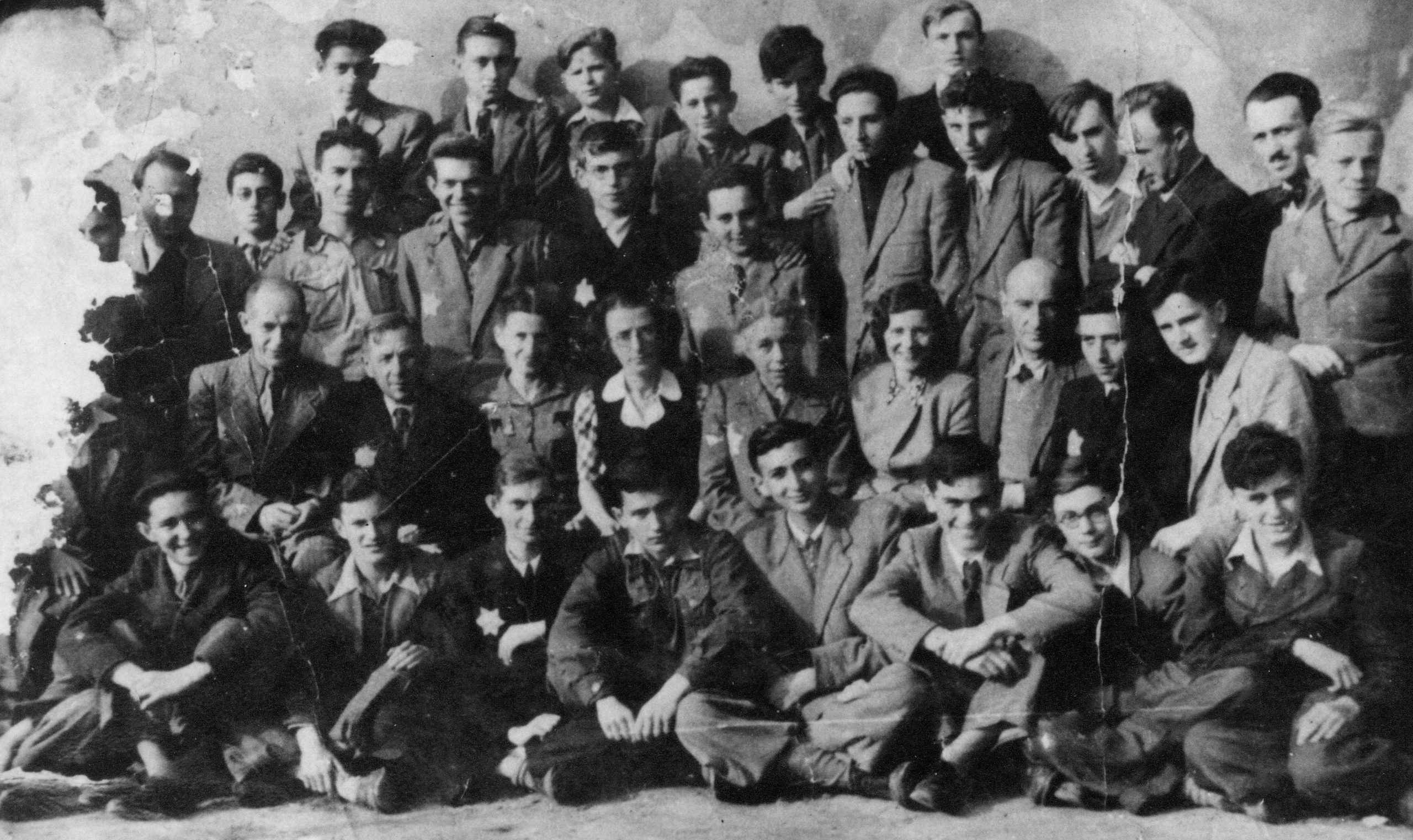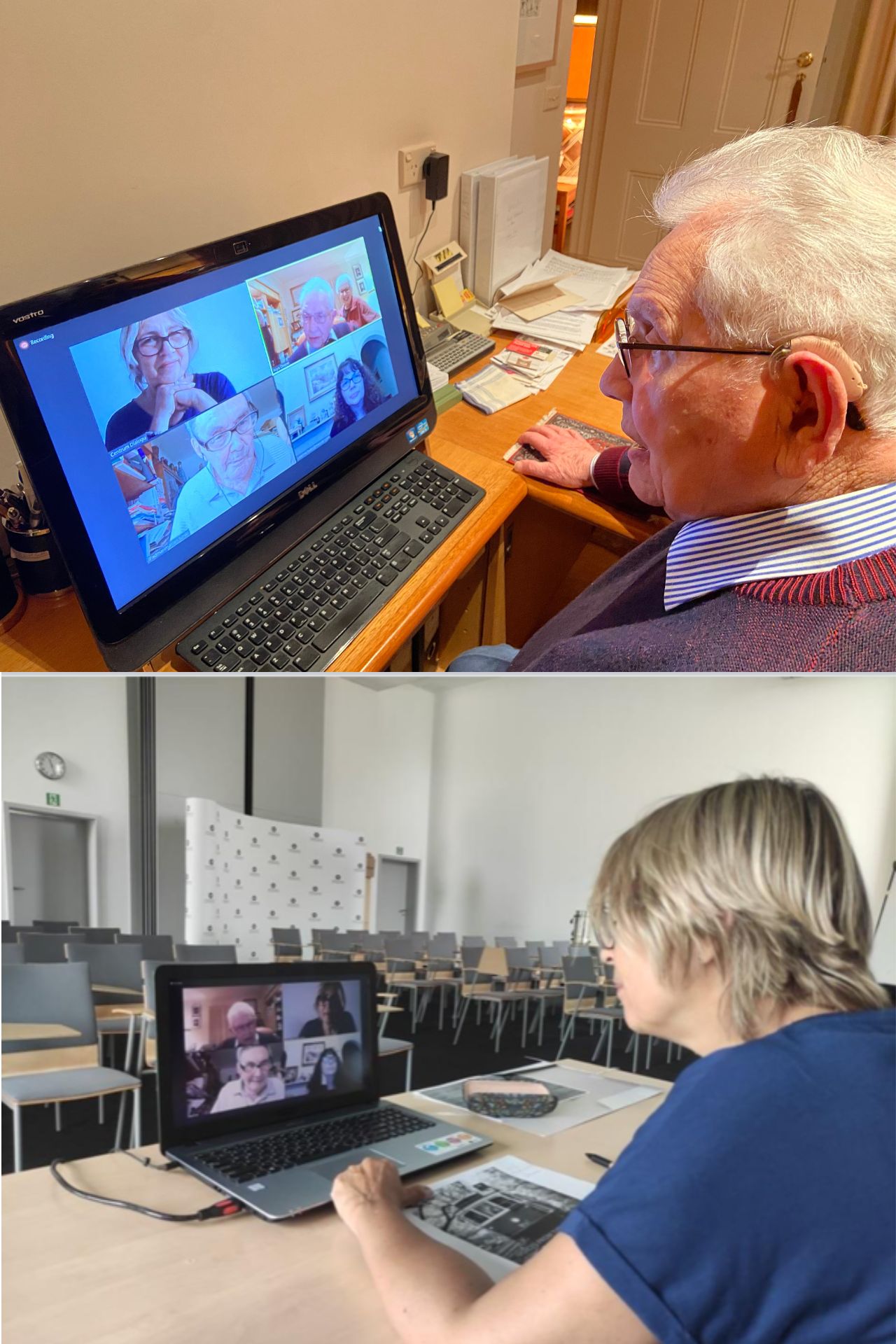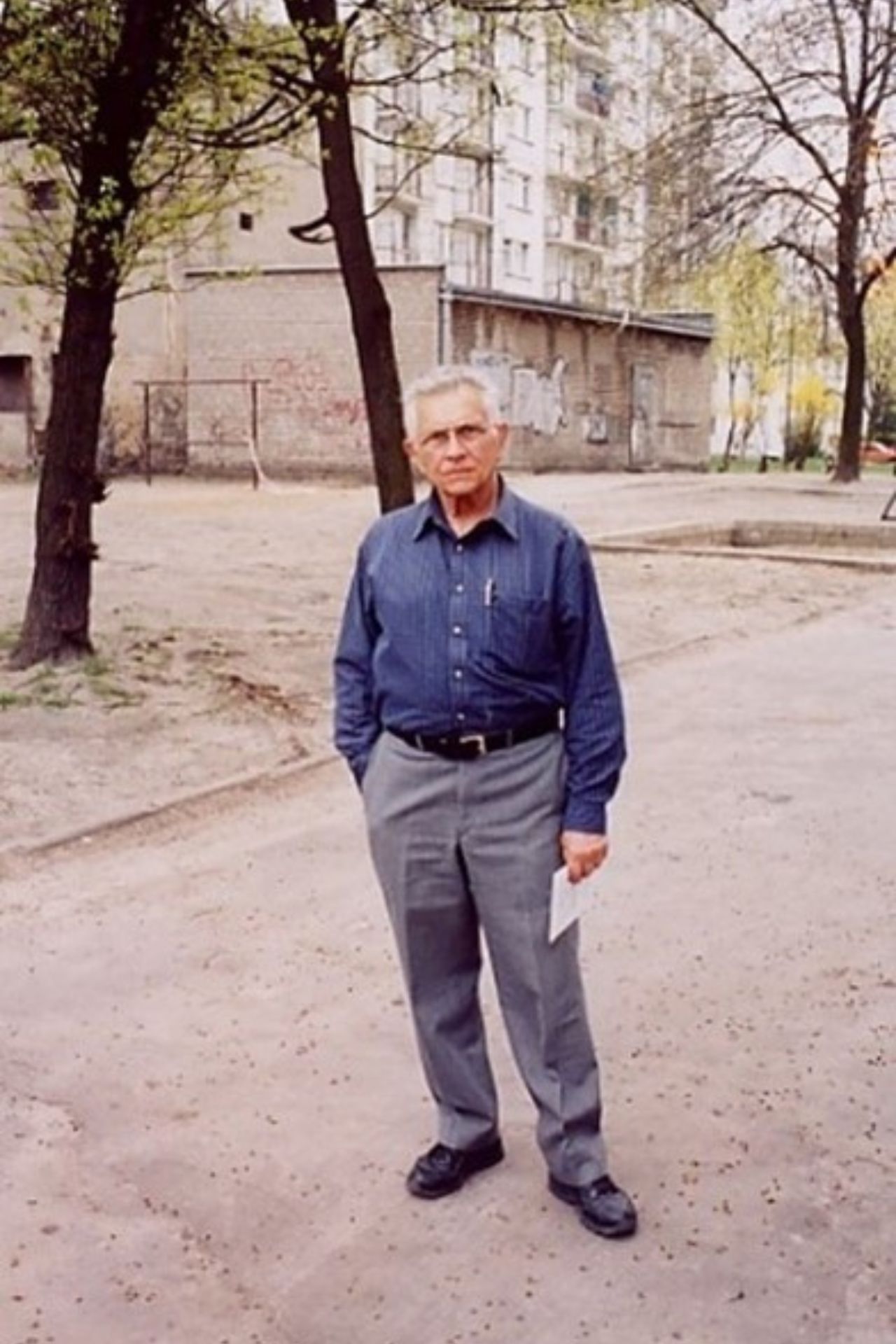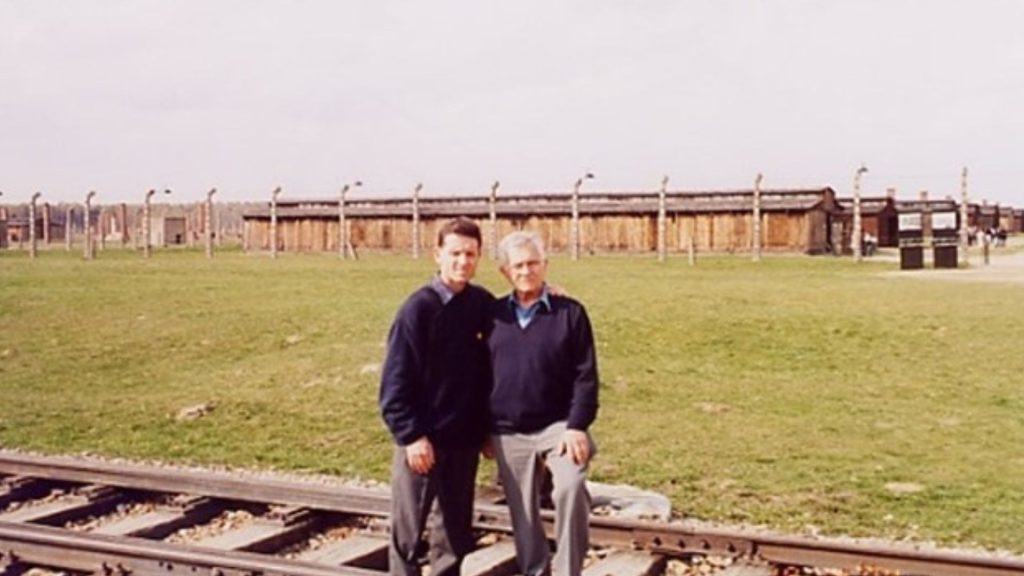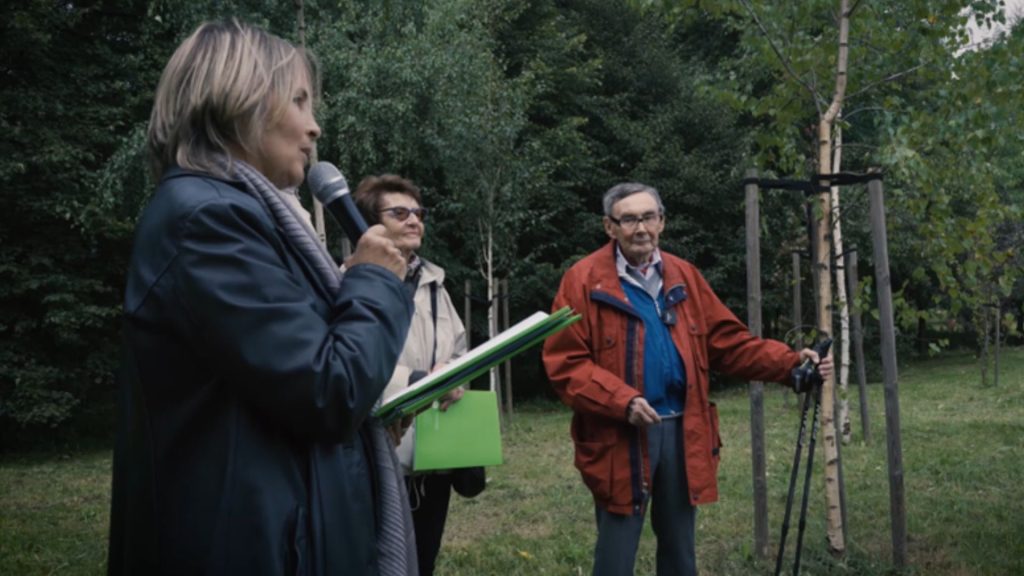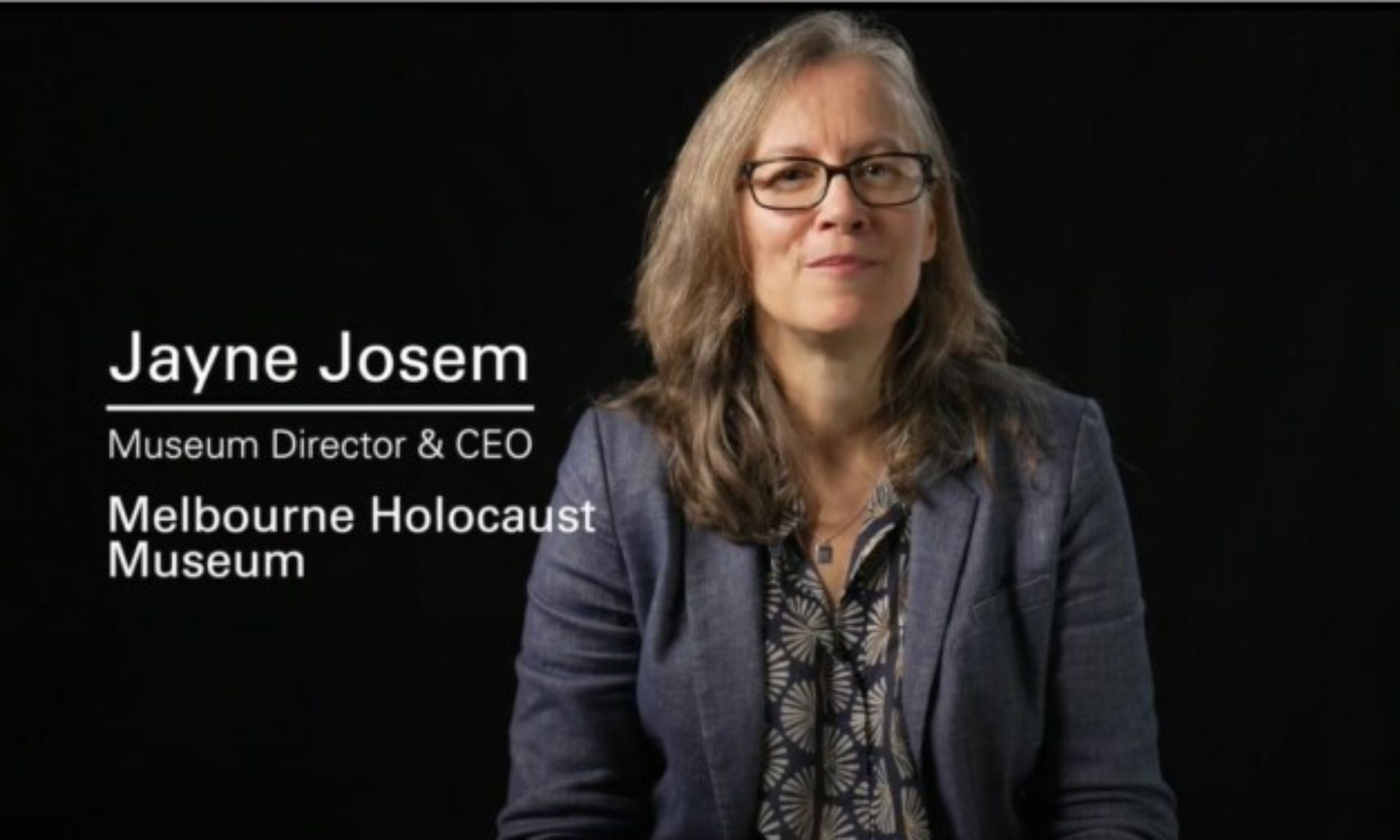In July 2021, at the height of the COVID 19 pandemic, the Deane family – Holocaust survivor Wolf and his wife Asya – sat in their home in Camberwell (joined online by their son John and daughter Leanne) eagerly awaiting a Zoom call. But this was not just any Zoom call – this was a reunion, a reunion of survivors: Wolf Deane (then Walek Fabiszewicz) and Marian Turski (then Mayer Turbowicz).
Wolf and Marian attended the same Jewish high school in the Lodz Ghetto – along with other Jewish boys within the Lodz community – until October 1941 when the school was shut down. Of the boys pictured in the above photograph, it is believed that Marian and Wolf are the only ones still alive today.
As the Zoom call lit up Wolf’s computer screen and Marian’s face appeared, Wolf’s anticipation turned to delight as he and Marian reminisced, in Polish, on the days spent at school and the lives they had led in the 80 years since they had spoken. Until they were reconnected, they each believed they were the only one alive from their classmates.
